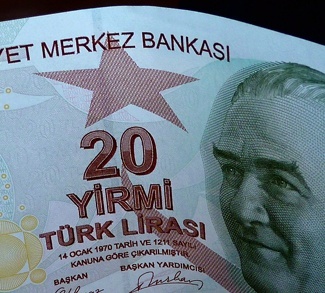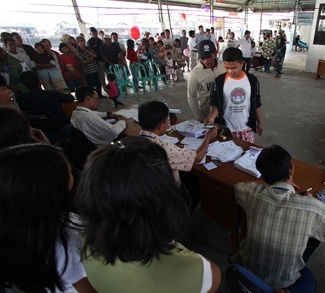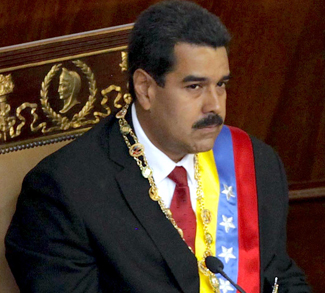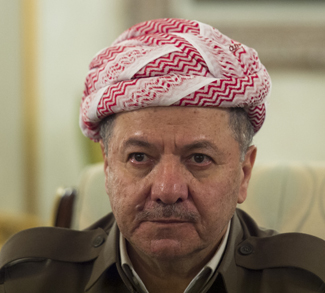On 30 April, the governor of Turkey’s central bank, Erdem Basci, announced that there could be an interest rate cut in the near future, although neither the number nor schedule were specified. This came a week after reaffirming the bank’s stance that tight monetary policy would remain in effect going forward in order to maintain a stable currency and reduce inflationary risks. The inflation outlook has not changed in the interim week; it is still projected to continue on its upward trajectory from its current rate of 8.39%, the highest it has been in eight months. This decision to sow uncertainty and potentially stoke further inflation and currency depreciation comes at a difficult time in Turkey, both politically and economically. It seems likely that Gov. Basci will be dismissed from his position, casting doubt on the Turkish Central Bank’s independence from an increasingly domineering Turkish government, headed by Prime Minister Recep Tayyip Erdogan. Both Turkey’s future and Erdogan’s next move are contingent upon whether Gov. Basci capitulates to increasing political pressure.
Effect on the Turkish Economy
The Turkish economy is suffering from high inflation already and faces currency risks that a lower interest rate would only exacerbate. These are a product of a 30% depreciation of the Turkish lira in the beginning of 2014 due, notably, to political instability, the US Fed’s tapering of Quantitative Easing (QE), servicing a large current-account deficit, and a growing fiscal deficit.
On 17 December, Prime Minister Erdogan was implicated in allegations of corruption and nepotism as Turkey geared up for municipal elections, held on 30 March. The municipal elections were widely seen as a referendum on Erdogan and the AKP, Turkey’s ruling party and its leader since 2002. As the controversy intensified, The Turkish lira reached a low of 2.39 TL per USD on 27 January, and the Turkish Central Bank spent 27% of its foreign reserves defending the currency. In late January, the Turkish Central Bank increased interest rates to 10%, a move that Erdogan opposed, but one that caused the Turkish lira to appreciate and stabilize. As the election neared, Erdogan’s methods became increasingly more authoritarian, and he took steps to ban Twitter, on 20 March, and YouTube, on 27 March. This trend looks likely to carry forward to the presidential elections, as YouTube remains censored.
This political instability occurred as the US Federal Reserve continued to taper its bond-buying policy, increasing the likelihood that emerging market liquidity will soon come to an end. The Turkish lira needs to be made more attractive, through higher interest rates, in order to defend against the shift of capital from emerging-markets, where higher growth and interest rates have absorbed capital, back to developed countries, where growth is beginning to pick up and institutions are stronger.
The situation is particularly dire in Turkey, as it currently uses short term capital, ‘hot money’, to finance its current account deficit, presently at 5.2 billion USD (TL 11 billion). The current account deficit is so high because Turkey imports expensive energy, mainly oil from Iran and natural gas from Russia, among other suppliers, and exports relatively less expensive manufactured goods, such as textiles. Turkey only has USD $34 billion in currency reserves to cover USD $129.1 billion of its external debt that will come due in the next year. According to Bloomberg, Turkey will need more than $5 billion of FDI a month to service its current account deficit. If political instability increases, hot money will be pulled out, FDI inflows will decrease, and Turkey will not be able to service its debt.
The depreciating Turkish lira has dovetailed with unsustainable public sector spending, provoking increased inflation. Turks are shying away from relatively more expensive imports and are opting for debt-financed domestic consumption. The Turkish government has spent heavily on infrastructure, notably ‘mega projects’ such as a third airport to service Istanbul. The government has opted to print Turkish lira to service its debt, increasing the money supply and inflation. The lagged effects of the currency depreciation have translated into imported inflation, as Turkish firms pay for relatively more expensive intermediate inputs. Over time, they will become less competitive as their products become more expensive relative to lower cost alternatives in the CEECs and Asia.
Inflation has also hit one of the pillars of the Turkish economy: tourism. A US$ 101.2 billion industry, or roughly 12.3% of Turkish GDP, and employing roughly 9% of Turks while helping to bolster foreign reserves, tourism has been affected by political instability and rising prices as inflation has increased to 10.12% on imported processed foods, hitting restaurants and hotels particularly hard. As prices increase, Turkey as a destination for northern European tourists will falter next to other less politically unstable Southern European countries like Spain, Italy, Greece, and Portugal.
Erdogan’s Incentives
Erdogan is increasing political pressure on the central bank to reduce interest rates because the AKP’s political rise and continued strength lies in the economic growth that Turks have come to expect. Increased interest rates translate into higher interest rates on borrowing, and, coupled with higher capital requirements, will lead to less capital availability, increased savings, and decreased investment in the private sector. The effects of interest rates on credit are immediate and explicit, and facilitate fairly abrupt economic decline, as opposed to inflation, which tends to be a more gradual process.
The stronghold of the AKP is in the Anatolian region of Turkey, an area that has been experiencing rapid growth as labor shifts from agriculture to manufacturing and as the population becomes increasingly urbanized. The growth of manufacturing and EU ascension in several CEECs, and the rise of low-wage labor based manufacturing in Asia, has forced Turkey to increase its competitiveness and to diversify its export markets, notably to the MENA region, where it has begun to effectively trade manufactured goods for energy. This growth has largely taken place in Anatolia, and has led to “Anatolian Tigers”, leading businessmen in the region, who are generally pro-AKP, hold great political capital in their cities and regions, and own or run manufacturing firms. As the prime region for capital investment, a manufacturing stronghold, and the political and geographic base of AKP support, Anatolia would disproportionately benefit from currency depreciation and suffer from increased interest rates. The effects of currency depreciation have already taken hold, as exports to the EU have increased by 13.5%, and will only increase as the EU begins to grow.
The Presidential Elections and Looking Forward
On 10 August 2014, Turkey will, for the first time, directly elect its president. The AKP did unexpectedly well in the municipal elections, and this momentum is expected to carry forward. The majority of the population lives in Anatolia, and this is where the AKP received the predominance of its votes in March’s municipal elections. At the moment, it is unclear whether Erdogan plans to run for the largely ceremonial role of president, appropriate powers from the prime minister, or rewrite the AKP’s constitution to allow for more than 3 terms as prime minister. In order to run for prime minister for a fourth time, Erdogan would need the political capital and a super-majority to rewrite the constitution. If this turns out to be infeasible due to the effects of current monetary policy and fragmentation within the AKP, he will run, effectively unopposed, for president, and, depending on his political capital and Turkey’s economic state, appropriate powers from the prime minister. His very decision may depend on how the Central Bank acts. There have already been rumblings about whether Gov. Basci will be dismissed from his post if he does not cooperate.
Turkey needs to rectify its current account deficit, through increased domestic savings not currency-depreciation fuelled exports, and stem inflation, both of which necessitate a high interest rate. As such, Erdogan’s assertion, on 4 April, to lower interest rates to facilitate growth is more about his election prospects than what would be for the good of Turkey. If Gov. Basci capitulates, he will undermine the Turkish Central Bank’s autonomy, and compromise an institution necessary for Turkey’s future growth. An autonomous central bank is crucial to the functioning of a modern economy, and this is especially true in emerging markets and transitioning countries like Turkey where multiple tradeoffs have to be factored into the decision making process. When central banks come under the purview of their governments, there is the danger that monetary policy can be used for political, myopic ends, such as, in this case, Erdogan’s ambitions. Unfortunately for Turkey, this looks likely to be the case, as Gov. Basci’s discussion of this stark, misguided policy change indicates.




